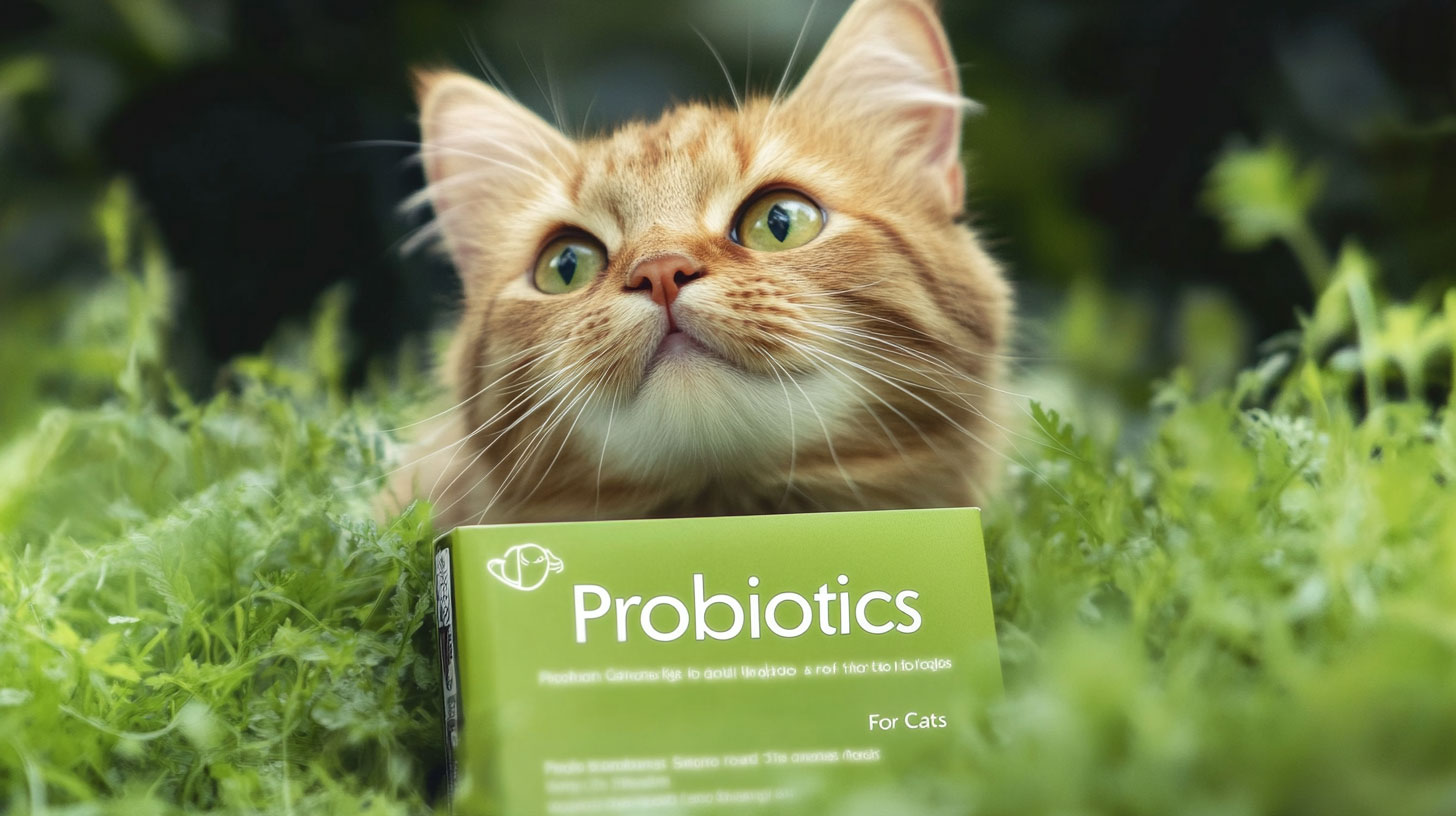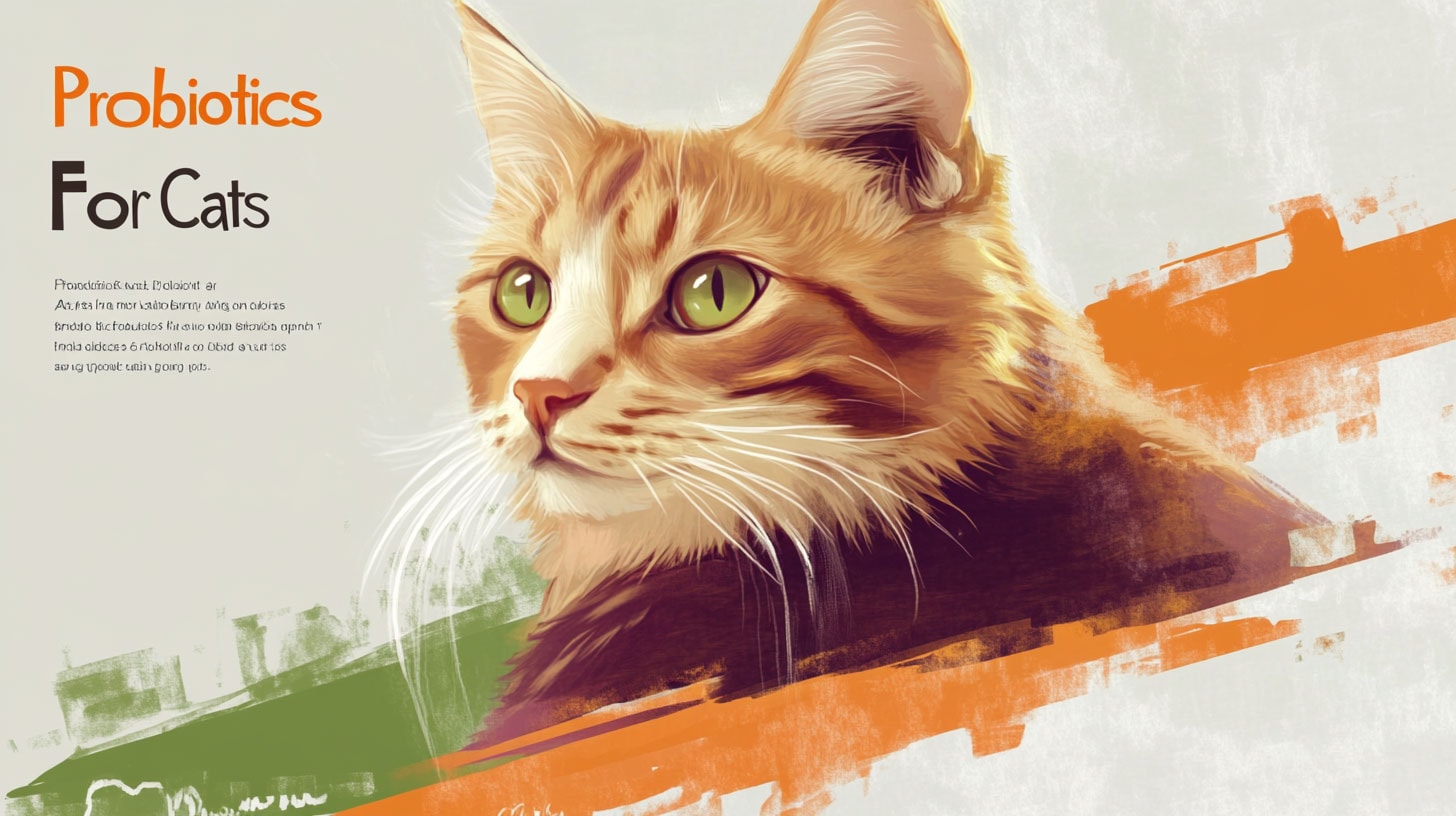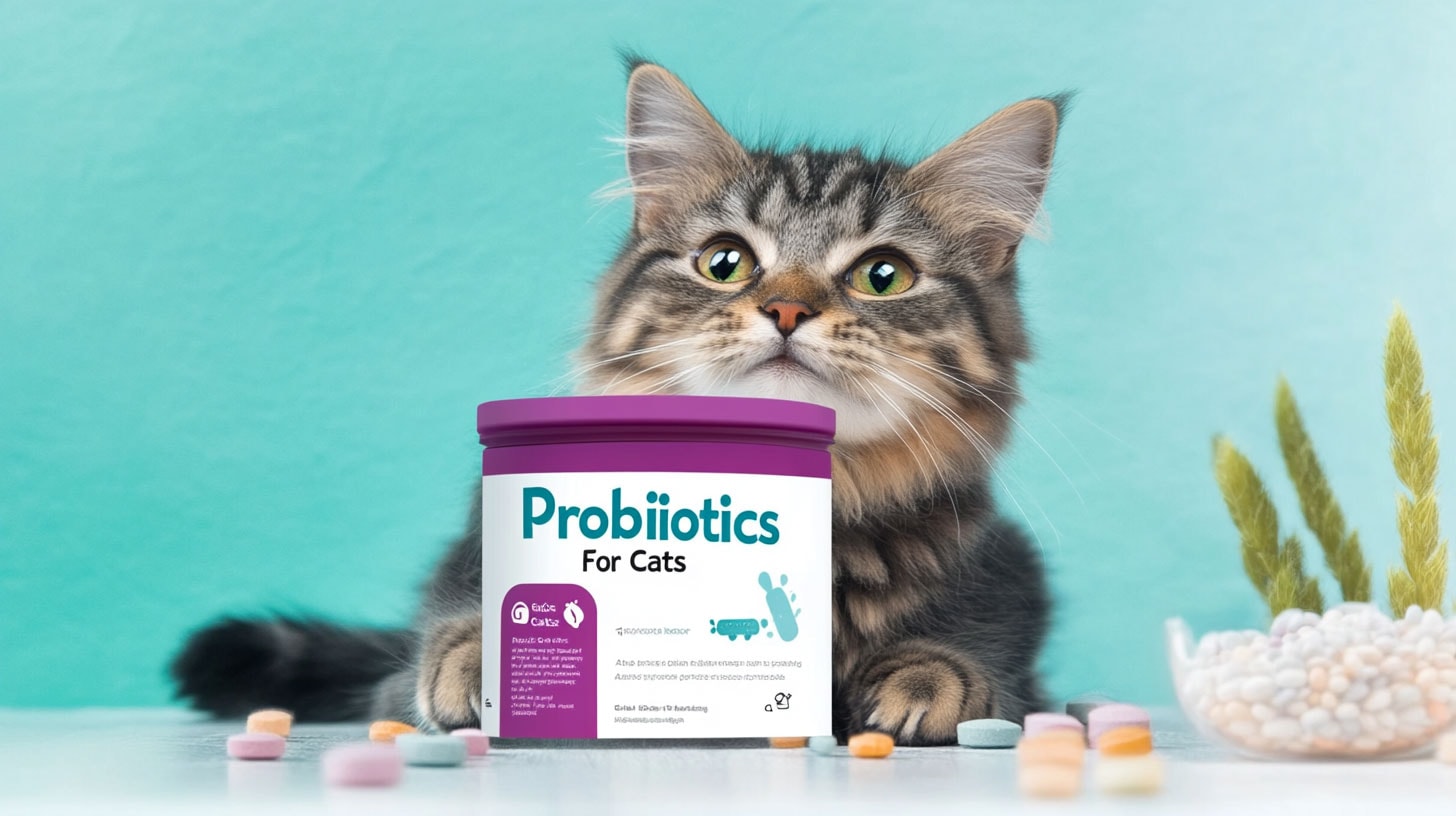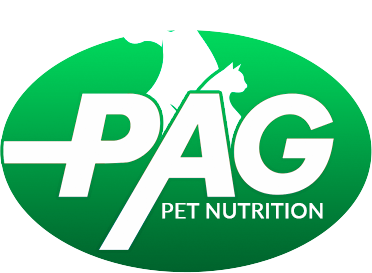
20 Feb Are Probiotics Worth It for Cats Improving Gut Health and Well-being
Probiotics for Cats: Enhancing Digestive Health and Immune System Support
Introduction
Probiotics have long been recognized for their role in promoting digestive health, both in humans and animals. For cats, probiotics are becoming an increasingly popular way to support a healthy gut, manage digestive issues, and boost the immune system. However, many pet parents are still uncertain about whether probiotics for cats are truly beneficial, or if they come with any risks. Common questions such as “Do vets recommend probiotics for cats?” and “Can probiotics have side effects for cats?” are frequently asked. This article will delve into these questions, explaining the benefits and potential risks of cat probiotics.
What Are Probiotics for Cats?
Probiotics are live microorganisms, such as bacteria and yeast, that offer health benefits by promoting a balanced environment in the digestive tract. Cat probiotics are specifically formulated to support the digestive health of cats by increasing the population of beneficial bacteria and reducing the impact of harmful bacteria.
The cat’s digestive system houses a complex network of bacteria, some beneficial and others potentially harmful. Maintaining a healthy balance of these bacteria is key to a cat’s overall well-being. When unhealthy gut bacteria outnumber the good bacteria, digestive issues can arise, affecting not only digestion but also other aspects of the cat’s health, such as immunity and mood. Probiotics help restore this balance, contributing to both digestive health and a stronger immune system.
Why Is Digestive Health Important for Cats?
A cat’s digestive health plays a crucial role in its overall health and well-being. Proper digestion allows for the efficient absorption of nutrients from food, supporting energy levels, growth, and maintenance of bodily functions. However, when unhealthy gut bacteria disrupt the balance in the digestive tract, cats can experience symptoms like diarrhea, constipation, bloating, and even weight loss.
An imbalance of gut bacteria doesn’t just affect digestion—it can also impact the cat’s immune system, making them more prone to infections and diseases. This is why maintaining good digestive health is essential for a cat’s overall health. Probiotics for cats can help manage these digestive issues by restoring a healthy gut flora balance, allowing for smoother digestion and better nutrient absorption.

Do Cats Need Probiotics?
The need for probiotics can vary from cat to cat. Cats with digestive issues, such as frequent diarrhea, constipation, or bloating, can greatly benefit from giving probiotics. Stress, illness, or antibiotics can also upset the balance of bacteria in a cat’s gut, leading to digestive problems.
Cats with weakened immune systems, such as kittens, senior cats, or those recovering from illness, may also benefit from probiotics. These supplements not only help maintain a healthy gut but also support the immune system, helping the cat to fend off infections and diseases.
Vets often recommend probiotics for cats facing digestive disturbances or when they are taking antibiotics, which can deplete both good and bad bacteria in the gut. By restoring the balance of good bacteria, probiotics can help minimize digestive upset and ensure your cat stays healthy.
Benefits of Cat Probiotics
Using probiotics can offer a wide range of benefits for cats, particularly in terms of digestive health and immune support.
Improved Digestive Health
Probiotics are commonly used to manage digestive issues in cats, such as diarrhea, constipation, and bloating. By promoting the growth of healthy bacteria in the gut, probiotics help ensure smoother digestion and reduce the risk of these uncomfortable symptoms.
Boost to the Immune System
Probiotics not only support digestion but also have a positive effect on the immune system. A significant portion of a cat’s immune system is located in the gut, and maintaining a healthy balance of bacteria can help the cat fend off infections and illnesses more effectively.
Weight Management and Obesity Prevention
Some research suggests that an imbalance of gut bacteria may contribute to weight gain or obesity in cats. By promoting a healthier gut microbiome, probiotics can help manage weight and prevent obesity-related health problems.
Support for Chronic Diseases
Cats with chronic conditions such as inflammatory bowel disease (IBD) or intestinal lymphoma may benefit from probiotics. By reducing inflammation and supporting the overall health of the digestive system, probiotics can help manage these conditions and improve the cat’s quality of life.
How Probiotics Can Help with Unhealthy Gut Bacteria
When harmful bacteria outnumber the beneficial bacteria in the gut, it can lead to digestive upset, immune system issues, and other health problems. Cat probiotics like Enterococcus and Bifidobacterium work by restoring the balance of good bacteria in the gut.
Enterococcus: Found primarily in the colon, this strain helps maintain colonic health and promotes the formation of healthy feces.
Bifidobacterium: Resides in the small intestine and supports overall digestive health, helping with the absorption of nutrients.
By introducing these strains, probiotics can improve digestion and ensure that harmful bacteria do not dominate the gut environment.
Types of Probiotics for Cats
Not all probiotics are the same. The most common types of probiotics for cats include Bifidobacterium and Enterococcus, both of which are lactic acid-based probiotics. These strains specifically target different parts of the digestive system, providing targeted support for gut health.
Multiple Strains for Better Results
For comprehensive support, it’s recommended to choose a probiotic with at least two different strains of bacteria. This ensures that various areas of the digestive system are supported, providing a more complete approach to improving gut health.

Do Vets Recommend Probiotics for Cats?
Yes, veterinarians frequently recommend probiotics for cats with digestive issues or those recovering from illness. Probiotics can also be beneficial during stressful situations, such as moving homes or changes in routine, as stress often leads to digestive disturbances. For ongoing digestive support, vets may suggest adding probiotics to a cat’s daily routine, especially if the cat has a history of gastrointestinal problems.
Can Probiotics Have Side Effects for Cats?
While probiotics are generally considered safe, some cats may experience mild side effects when first starting a probiotic regimen. The most common side effects include flatulence and changes in stool consistency. These side effects are usually temporary as the cat’s system adjusts to the new bacteria.
It’s important to give probiotics under the supervision of a vet, as improper use or over-supplementation can cause imbalances in the gut. Each cat may react differently to probiotics, so careful monitoring during the initial period is essential.
When Should Cats Take Probiotics?
There are several situations where cat probiotics may be particularly beneficial:
-
After Antibiotic Treatments: Antibiotics kill both good and bad bacteria, so probiotics help restore the balance in the gut after antibiotic use.
-
During Stressful Situations: Cats experiencing stress, such as during travel or changes in their environment, may benefit from probiotics to keep their gut health in check.
-
For Senior Cats or Kittens: Both young and old cats may require probiotics to boost their immune system and maintain gut health.
-
Dietary Changes: When switching your cat’s diet, probiotics can help them adjust more smoothly and avoid digestive issues.
Signs that your cat might need probiotics include flatulence, constipation, diarrhea, or a loss of appetite.
Choosing the Best Probiotics for Cats
Probiotics come in various forms, such as powders, capsules, chews, or incorporated into specially formulated cat food. It’s crucial to consult a veterinarian before introducing probiotics to your cat’s diet to ensure the correct strain and dosage are chosen.
Homemade probiotics are not recommended, as the science of gut bacteria is complex, and professionally formulated products ensure both safety and effectiveness.
Are Cat Probiotics Worth It?
Given the numerous benefits, cat probiotics are definitely worth considering, especially if your cat struggles with digestive health or has a weakened immune system. The long-term benefits of improved gut health, reduced digestive upset, and a stronger immune system make probiotics a valuable addition to your cat’s diet.
While probiotics may come at a cost, their ability to maintain overall health far outweighs any downside. Consulting your vet will ensure that the chosen probiotic is suited to your cat’s specific needs, providing a safe and effective solution for better gut health.
Conclusion: Supporting Your Cat’s Digestive Health with Probiotics
Probiotics for cats are a beneficial tool in improving digestive health, managing digestive disturbances, and boosting the immune system. Whether your cat is facing digestive issues, recovering from illness, or needs support in stressful situations, cat probiotics can help restore the balance of beneficial bacteria and promote better overall health. Always consult with your veterinarian before introducing a probiotic to ensure it’s the right choice for your cat’s unique needs.

